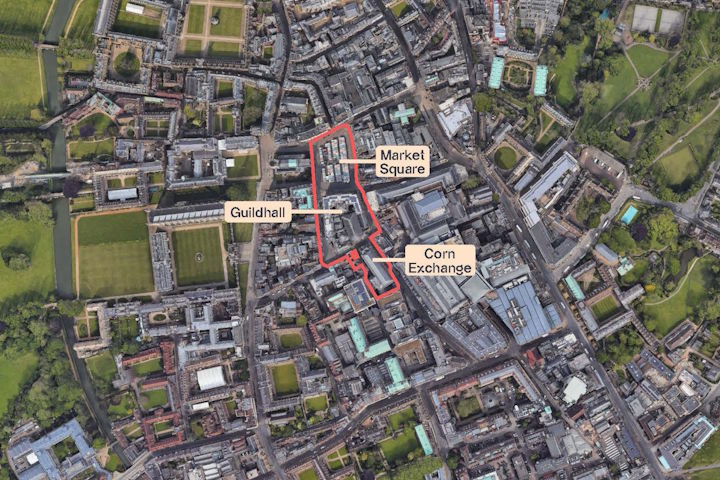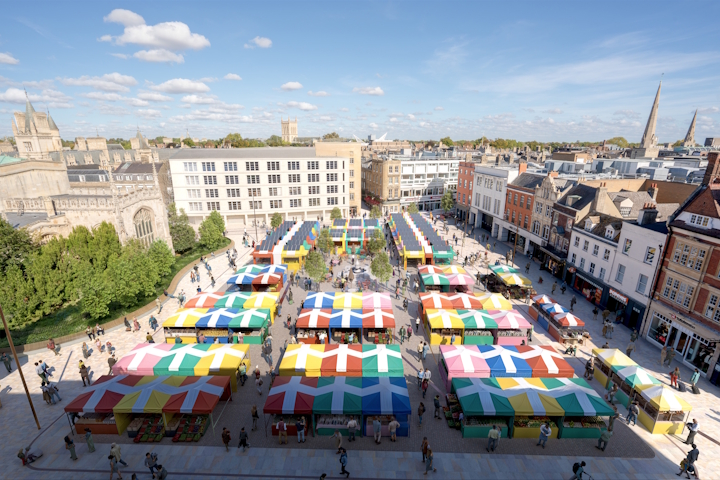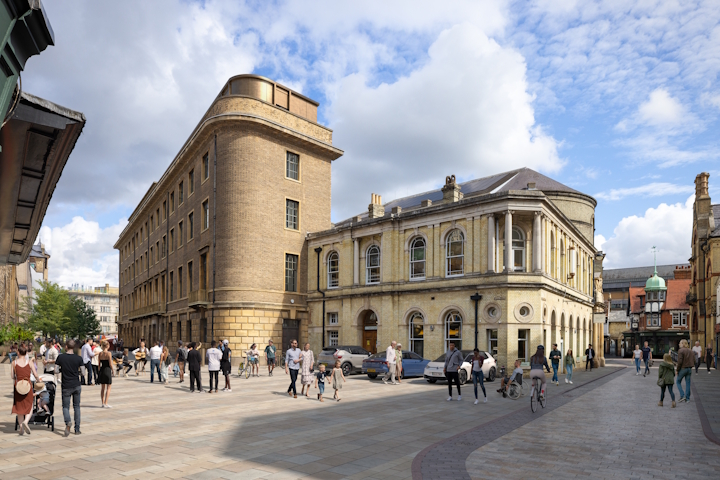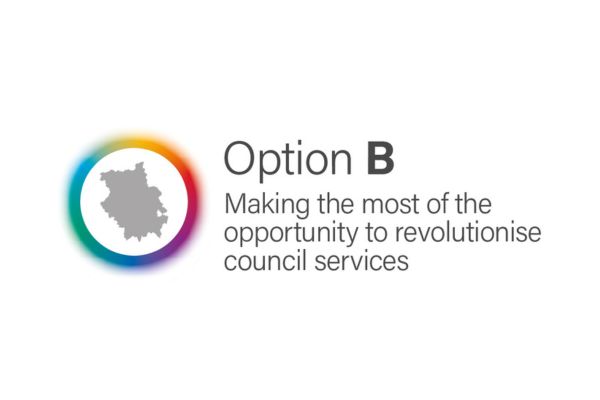
The Civic Quarter is the term used to describe the area in central Cambridge comprising the Guildhall, Corn Exchange, Market Square and public spaces in between.
Traders have been running stalls on the Market Square since the Middle Ages, the Guildhall site has been a seat of local democracy for 800 years, and the Corn Exchange is celebrating its 150th anniversary in 2025.

As custodian of these historic sites, the council needs to invest in their upkeep and plans to do so in a way that will generate income and reduce operational costs as part of its wider plans to balance its budget.
The project’s ambition is to ensure the area is fit for a 21st century society and offers a focal point for the city that residents can be proud of.
Accessibility
We also want to make the area more inclusive and accessible, by:
- providing open, welcoming spaces with more opportunities to meet and sit
- improving access to the buildings
- resurfacing the market and surroundings to make the area accessible for wheelchair and pushchair users
- prioritising pedestrians over vehicles where possible
Sustainability
The council is committed to sustainability, aiming for net zero operational carbon by 2030. The Civic Quarter project includes significant sustainability deliverables.
We will provide green infrastructure to support biodiversity, increase resilience to climate change and improve people’s experiences of the place.
We are aiming for a 20% net gain in biodiversity. Water neutrality will also be targeted across the site by increasing smart water usage practices such as ultra water efficient fittings, rainwater harvesting and methods to reduce surface water flooding.
We will monitor the embodied carbon of the materials used within construction, which refers to the total greenhouse gas emissions associated with the manufacturing, transportation, installation, maintenance and disposal of building materials over their entire lifecycle.
There will be a focus on improving building insulation and energy efficiency. This includes using natural ventilation, energy efficient lighting and systems, smart energy management systems and solar panels. The Civic Quarter will also be future proofed to ensure it can connect to the proposed District Heat Network.

Reducing operational costs
The council has committed to a review of its existing properties, including Mandela House on Regent Street, which currently provides office space for our staff and customer services provision. If these facilities are moved into the Guildhall, it may create an opportunity for a capital receipt to contribute towards the Civic Quarter works.
Consolidating our office accommodation and customer service centre from Mandela House into the Guildhall will result in significant reductions in operational costs.
We are also aiming to reduce costs by applying a fabric-first approach to building upgrades, installing modern efficient building services, and incorporating on-site renewables and smart operational technologies.
Latest update
- A recommendation was made to Full Council (9 October 2025) for a capital budget of up to £4.4 million to be allocated to continue the work over the next year, and for planning applications to be submitted this autumn for the Guildhall, Corn Exchange, Market Square and associated public realm works. This recommendation was approved.
- In late 2025 the Civic Quarter project team submitted three planning applications for the Civic Quarter project to the Greater Cambridge Shared Planning (GCSP) service. Find out more about the planning applications. The planning applications have not been determined yet.
Cabinet and Full Council will consider the proposals again, with updated detail and costs, in autumn 2026, before any work would start on site from January 2027.
The proposals are for the work on the Market Square to be completed in 12 months, and for the Corn Exchange to be reopened within 18 months, and the Guildhall reopened within 24 months.
Further information

Background on the project
The project was first approved in January 2024, with a consultancy team appointed to lead the work. The team developed conceptual designs and ran a public engagement programme in summer 2024.
The engagement programme helped to shape updated proposals which were discussed by councillors at the Strategy and Resources Committee in November 2024, with approval given to progress the project to the next stage.
We reappointed the consultancy team to further develop the proposals, and ran a further public engagement programme on the more detailed plans in May/June 2025.
Following the engagement programme, the team published updated proposals in autumn 2025 for consideration by councillors at Cabinet on 25 September (view the meeting report and additional appendices).
Cabinet made a recommendation to Full Council (9 October 2025) for a capital budget of up to £4.4 million to be allocated to continue the work over the next year, and for planning applications to be submitted this autumn for the Guildhall, Corn Exchange, Market Square and associated public realm works. This recommendation was approved.
In late 2025 the Civic Quarter project team submitted three planning applications for the Civic Quarter project to the Greater Cambridge Shared Planning (GCSP) service. Find out more about the planning applications. The planning applications have not been determined yet.
There are many individuals and organisations involved in this complex project and the team is meeting with many of these stakeholders, including the Civic Quarter Liaison Group. We continue to work closely with market traders, holding regular meetings to discuss stall designs, temporary relocation during future works, and long-term market operations.
Project costs
When we first announced our plans to consider redeveloping elements of the civic quarter site, councillors committed to an initial sum of £20 million being ring-fenced from the council’s reserves.
This was never designed to fund the whole works, and additional funding sources would be needed to deliver the works in full.
Of the £20 million, an initial £1.45 million was allocated for the first phase of concept design work during 2024.
In November 2024, a further budget of £3 million was approved to develop detailed design proposals and host further public engagement during 2025, and to prepare for the submission of a planning application in autumn 2025.
In October 2025, a capital budget of up to £4.4 million was approved, to continue the work over the next year, and for planning applications to be submitted in autumn 2025 for the Guildhall, Corn Exchange, Market Square and associated public realm works.
Sign up for updates
Sign up to receive updates regarding Cambridge Civic Quarter using our email subscription form.



